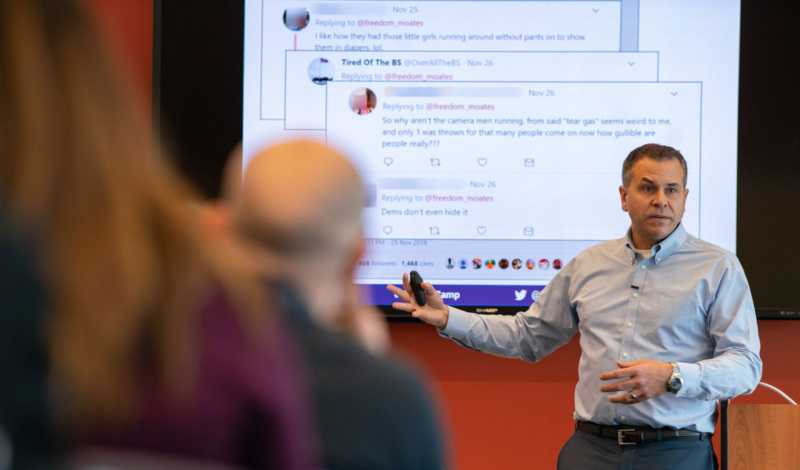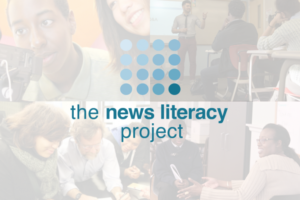


The idea for the News Literacy Project came to me in 2006, when I spoke to my daughter’s sixth-grade classmates about what I did as a journalist and why it mattered.


Two years later, after 21 years as a reporter, I left the Los Angeles Times and started NLP. At the time, I thought of it as moving from the supply side of journalism to the demand side.
But as we began to work in secondary schools with our classroom, after-school and e-learning programs, my perspective broadened. Increasingly, I saw our greatest benefit as strengthening the grass roots of the country’s democracy by giving the next generation the tools to know what news and information to trust, share and act on, both as students and as future voters. After all, the bedrock of a healthy democracy is an informed and engaged electorate.
From the beginning, people told me that this was a great idea — and that adults needed these skills, too. Or at least some adults: My mother-in-law, who sends me all kinds of cockamamie things she finds online, needs this. My uncle, who believes everything he hears on the radio, needs this. Or even: I need this!
But we had already undertaken an enormous mission: educating teenagers that all information isn’t created equal. We found that impressionable younger students often believed that if someone put something on the internet, it must be true. Some high school students, on the other hand, were already cynical enough to believe that all news or information is equally driven by an agenda — and, in the case of news, by personal, political and commercial bias. Some even viewed raw information — for instance, random musings in a blog post or a cellphone video uploaded to YouTube — as more reliable than a news report published or broadcast by mainstream media.
Moreover, our goal was ambitious, too: to embed news literacy in the American educational experience. In May 2016, building on all of our work since 2008, we launched our Checkology™ virtual classroom as our path to exponential growth nationwide. We were heartened to see the platform quickly gain traction in every state in the country.
Then, following a bitterly divisive 2016 presidential campaign that featured daily assaults on truth and partisan attacks on the news media, we learned about the prevalence and power of online hoaxes and conspiracy theories. The need to extend news literacy to the general population suddenly took on far greater urgency.
So NLP has embraced the opportunity to develop, with Facebook’s support, a public service ad campaign for the world’s most popular social media platform. Not only is this consistent with our mission, but it will enable us to create creative and compelling messages that take advantage of Facebook’s exceptional targeting capabilities to promote news literacy among a massive new audience of engaged adults, as well as young people.
This campaign will raise awareness of the importance of being a skeptical and responsible consumer of news and information. It will help give millions of Facebook users the ability to discern credible information from raw information, propaganda and misinformation. And it will elevate the field of news literacy and reinforce NLP’s leadership role.
We may even reach some of my daughter’s sixth-grade classmates. They’re now young adults and no doubt are getting much of their news and information from Facebook. It would be a fitting way to reconnect.